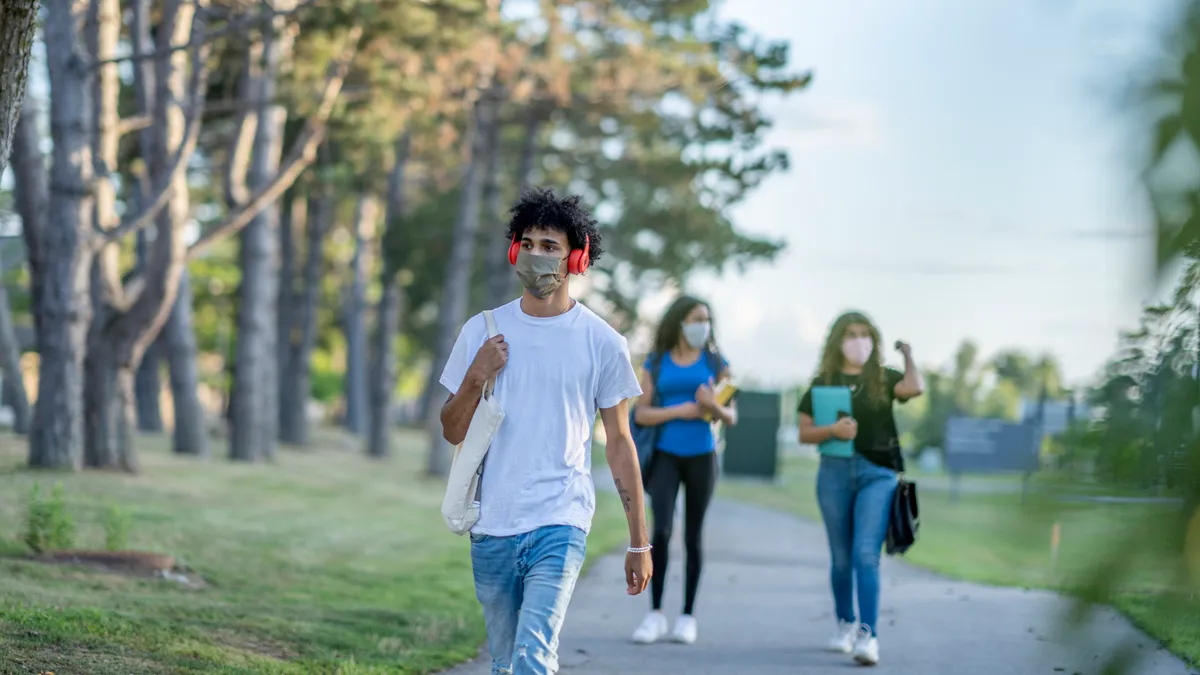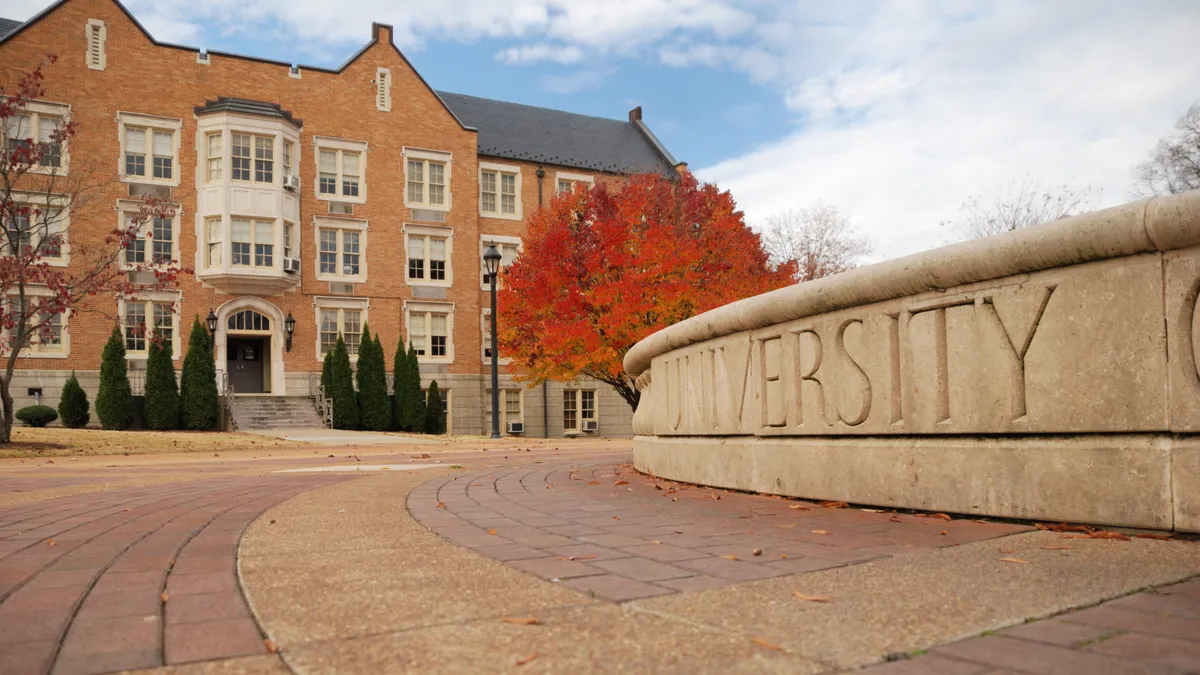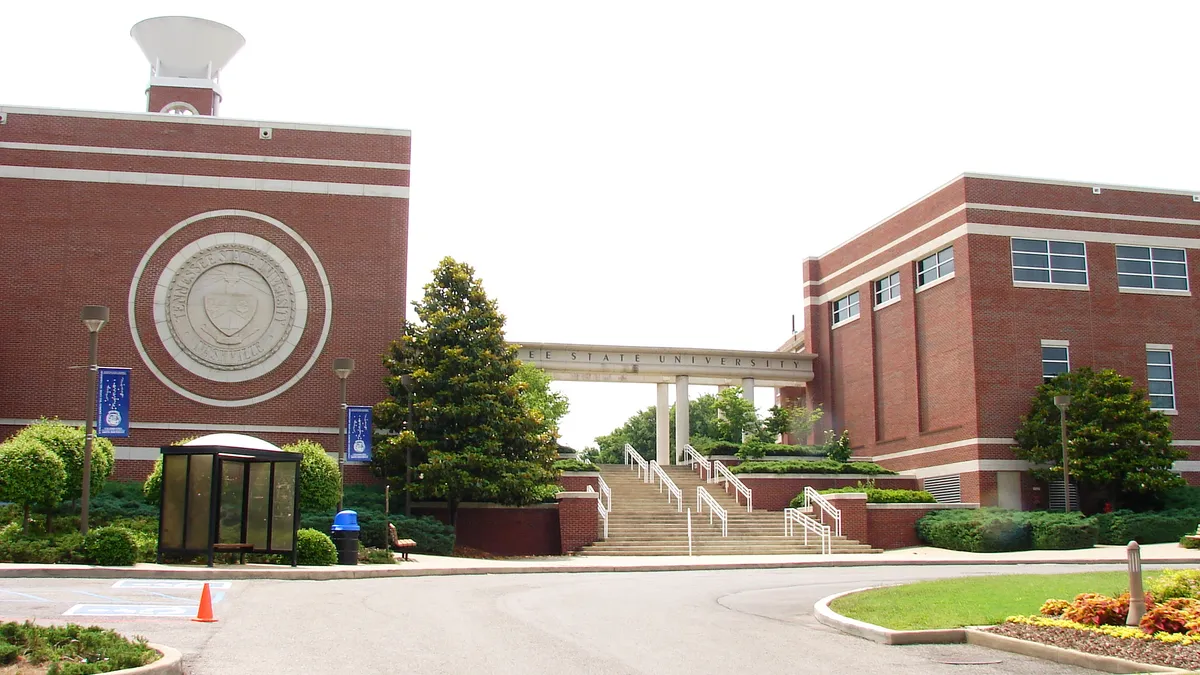Dive Brief:
-
An increase in reports of hate crimes at the state level drove up enrollment of Black, first-time college students at HBCUs by 20%, according to new research published by Stanford University’s Center for Education Policy Analysis.
-
This amounts to an additional 33 students per school each year, using the average first-time enrollment at HBCUs in 2017 — a "modest, yet practically significant, increase," the report explains. Researchers looked only at states with at least one HBCU.
-
Many studies have recorded a rise in bigoted incidents on college campuses and beyond, but this one links those episodes to enrollment shifts among Black students.
Dive Insight:
Incidents of hate and bias ratcheted up on campuses nationwide in the wake of President Donald Trump's election in 2016, reports show.
Though the racial animus across the country has been well-documented, "little is known" about how it affects enrollment patterns, the study notes.
"In light of the current president and the rhetoric, we wanted to explore the different types of choices where students are going to enroll in college," said Dominique Baker, an education policy professor at Southern Methodist University and report co-author.
She and co-author Tolani Britton, a University of California, Berkeley, education professor, drew on federal enrollment and campus crime statistics, as well as hate crime information collected by the FBI, from 1999 to 2017. It excludes for-profit institutions, as they enroll large shares of online learners.
They discovered that enrollment of first-time Black students climbed at HBCUs and fell at non-HBCUs in states where hate crime reports increased.
Baker said they wanted to be upfront about the data’s limitations. Many incidents have likely gone unreported, and the way hate crimes are classified is inconsistent. For instance, the report used data collected under the Clery Act, which mandates that colleges collect and publicize crimes occurring on and around their campuses. Many institutions have botched their Clery reporting, however.
Despite these restrictions, officials wanting to "get a pulse" on these matters would need to draw from the same data, Baker said.
Similar research has shown campus hate crimes and the general political climate has led to more Black students enrolling at HBCUs. Several HBCUs have seen strong enrollment in the last several years, as The Journal of Blacks in Higher Education documented, including North Carolina Agricultural and Technical State University and Albany State University, in Georgia.
Baker and Britton also found that reports of hate crimes at colleges across the country boosted first-time enrollment overall and of Black students at HBCUs, though the pair noted the scarcity of institutional-level data.
Baker advises administrators at all institutions to consider how best to address the "root causes" of bias incidents, rather than pursue one-off measures meant to diffuse racial tension. A single webinar is much less helpful than systemic measures designed to tackle what caused a hate crime in the first place, she said.









